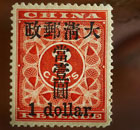Society
Suzhou survey: More IP protection needed
By Lu Wei (China Daily)
Updated: 2010-02-03 07:40
 |
Large Medium Small |
Improved efficiency
Cutting the investigation costs for collecting evidence, a requirement for filing an intellectual property infringement case, and shortening the time for patent application examination were other needs cited by survey respondents.
It now takes around three years to process a patent application in Taicang.
According to the statistics on SIPO's website, the national average examination period dropped from 53 months in 2001 to less than 26 months in 2009.
Time needed to secure patents on utility models fell from 11 months in 2005 to 5.8 months in 2009, while design patents required 5.5 months last year compared to 9.5 months four years earlier.
Improved efficiency enabled more than 150,000 invention patent applications to be handled during the first nine months of last year, a 40.9 percent increase over the same period the previous year. About 230,000 were processed in the entire year.
Hi-tech status
The Taicang survey showed just four of the respondent companies meet regulations to be recognized as hi-tech enterprises, only about 7 percent of the total.
Regulations require sustained development, research capability and proprietary intellectual property rights to obtain regulatory status as a hi-tech enterprise - entitling such companies to a 15 percent tax cut.
Without the high level of intellectual property rights required by regulations, the majority of German-invested companies are not eligible for the tax break - a factor hindering their growth, according to the survey.
Chen said local authorities plan to host briefings for foreign investors to enhance understanding and trust in various levels of the system.
"Foreign-invested companies will then be in a better position to know how to use the system and maintain their rights," Che said.
"Credibility is vital to an enterprise," Xia said, adding that his company will file for another two patents this year after applying for 10 last year.
Like Suzhou Tox Pressotechnik, Kern-Liebers China Group, the first German-funded company in Taicang when it began operations in 1993, is also a strong proponent of patented technologies.
Zhang Zhenwei, Kern-Liebers general manager, said the group applied for five patents in China in 2009, which are now being processed by authorities, and plans to apply for another five patents this year.
"Despite the global economic turmoil, our sales revenue did not decline in 2009, but instead increased by 15 percent compared with the same period of the previous year," Zhang said.
He partly attributed the growth to support for intellectual property protection from Taicang authorities.
"Now 85 percent of core technologies have been introduced into Taicang from our parent company in Germany," Zhang added. Kern-Liebers is one of the four companies in Taicang granted official hi-tech status.
Investment destination
To date, more than 140 German investors have established operations in Taichang, making it the most German- intensive investment destination in the province.
At a recent intellectual property forum for German-invested companies held in Nanjing, capital of the province, more than 70 percent of participants were from such companies in Taicang.
Because Jiangsu province is a key German investment destination, Taicang has drawn wide attention from the German business community.
With close proximity to Shanghai, the country's commercial hub, Taicang is attractive to investors due to convenient information, logistics and human resources.
At the center of the Yangtze River Delta, the small city is ranked among Forbes magazine's top 50 commercial cities on the mainland, according to Feng Yuliang, deputy director of the administrative committee of Taicang Economy Development Zone.
Jiangsu province has an established sister relationship with Baden-Wrttemberg, a state in southwestern Germany, which increases exchanges and enables more German investors to know about Taicang's investment potential.







